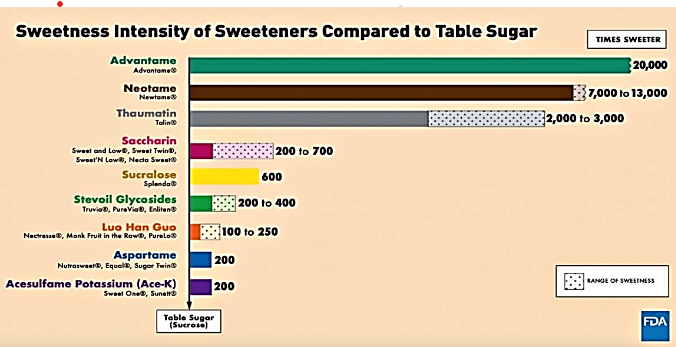Important for
Prelims: Science & Technology
Mains: General Studies III
What is in the News?
- The cancer research arm of the World Health Organisation (WHO) will list the popular sugar substitute aspartame as “possibly carcinogenic to humans”, the news agency Reuters reported on Thursday (June 29).
- The listing by the International Agency for Research on Cancer (IARC) is likely next month, the Reuters report said, quoting unnamed sources.
- The IARC’s assessment does not take into account safe consumption levels, which are determined by the Joint Organization Expert Committee on Food Additives (JECFA)
More About Aspartame
- Aspartame is one of the world’s most common artificial sweeteners and is used in a wide range of diet soft drinks, sugar-free chewing gum, sugar-free ice cream, sugar-free breakfast cereals, etc.
- A number of studies have repeatedly said that aspartame does not pose a risk for cancer. The listing by WHO, if it comes, will break from those earlier findings, “pitting it against the food industry and regulators”, the Reuters report said.
- According to the US Food and Drug Administration (FDA), aspartame is about 200 times sweeter than table sugar — which makes aspartame far less sweet than other artificial sweeteners like advantame and neotame, but even then, 1 gram of aspartame has the sweetness intensity of roughly 2 teaspoons (about 8 g) of sugar.
- Aspartame is preferred by people trying to cut calories or lose weight, or by diabetics, because while 2 teaspoons (8 g) of sugar provides about 32 kcals of energy, 1 g of aspartame is only 4 kcals.
- Aspartame is present in several brands of artificial sweeteners, the most common of which in India are Equal and Sugar-Free Gold.

Practice Questions for Prelims
What is the acceptable daily intake (ADI) for Aspartame set by the FDA?
a) 5 mg/kg body weight
b) 50 mg/kg body weight
c) 50 mg/day
d) 50 g/day
Ans. b)
Mains Practice Question




Leave a Reply
You must be logged in to post a comment.